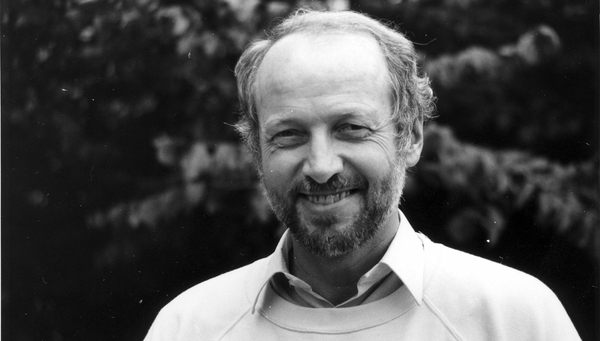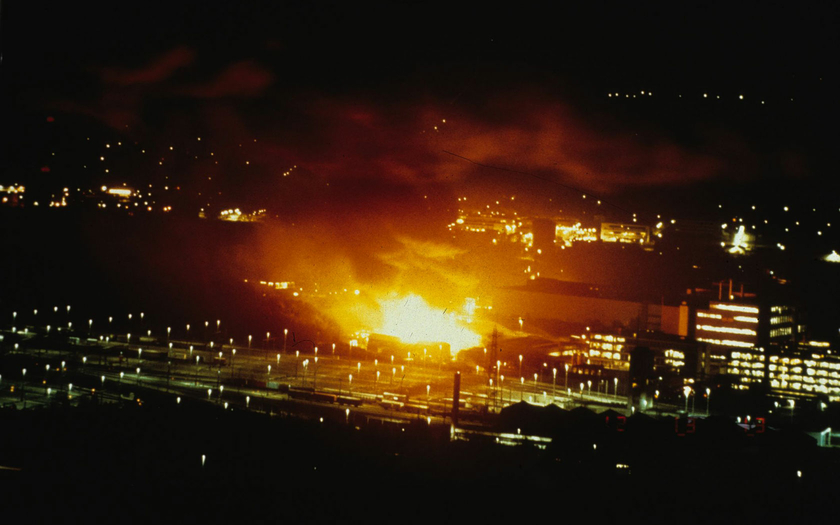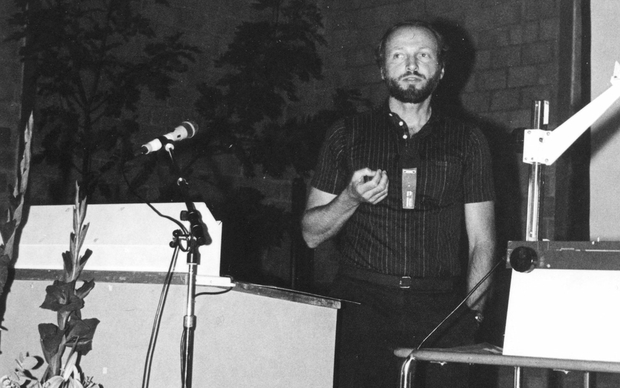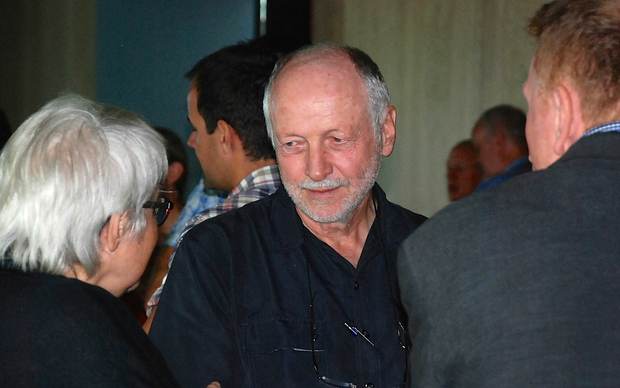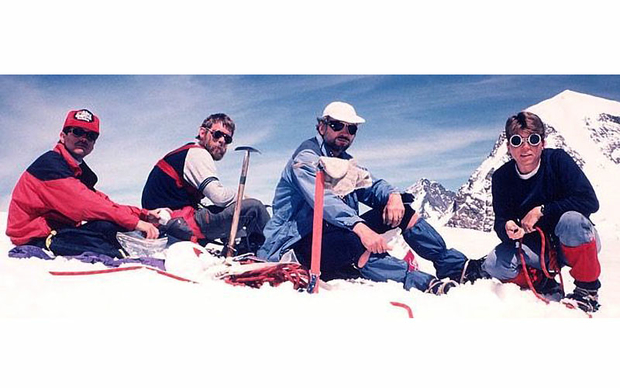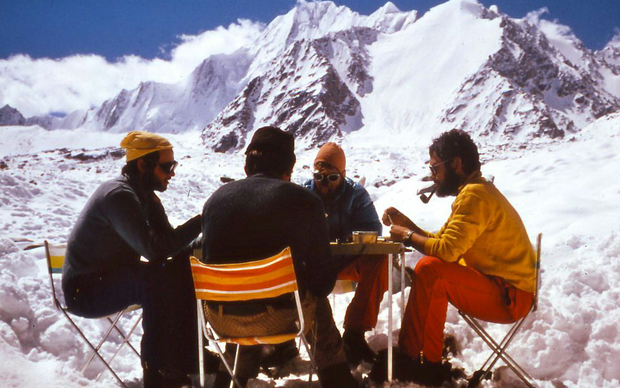News Detail
Environmental chemist Walter Giger has passed away
November 19, 2025 |
Just recently, Walter Giger was a guest at the Eawag Information Day 2025 on how the quantity and quality of our groundwater could be better protected. Just recently, we at the Eawag Media Office referred him to a journalist as a discussion partner and expert because he had already pointed out the dangerous persistence and accumulation of perfluorinated substances (PFAS) in the environment more than 30 years ago. Just recently. And now, just two months later, "Walti" passed away on 6 November 2025. Although he had been retired since 2005, the chemist remained closely associated with Eawag, at times as an official scientific guest. With his passing, we have lost an outstanding expert, thought leader, networker and achiever in analytical chemistry, and for many, simply a friend.
Appointed by the Federal Council
Walter Giger (*1943) received his diploma from ETH Zurich in 1968 and his doctorate in 1971. He joined Eawag as a research assistant in 1972. In 1975, he became a "permanent employee" and "research assistant" and was formally appointed as a civil servant by the Federal Council in 1981. Fortunately, he never adopted the proverbial civil servant mentality. The then Eawag Director, Werner Stumm, sent him on two study visits to the USA that had a formative influence on him: in 1973 to the Woods Hole Oceanographic Institute in Massachusetts and in 1978/79 to the geochemical laboratory of the US Geological Survey's in Menlo Park, California, near Stanford University.
Professorial honours
From 1977 onwards, Walter Giger was also a lecturer at ETH Zurich. He had had his own organic chemistry group, "the Giger Group", since 1972. Among other things, the job description stated that their work: "... is based on the use of state-of-the-art chemical instrumental analysis (gas chromatography, mass spectrometry, etc.) and plays an increasingly important role in the assessment of water quality and environmental chemistry." In 1991 and 1993-95, he was head of the Chemistry Department; with the reorganisation under the new director Alexander Zehnder, he became process manager for "Chemical Problem Substances" in 1999. In 1991, he was appointed honorary professor at the University of Karlsruhe and in 1995 titular professor at ETH Zurich.
Walter Giger, always supported by pioneers in technical analysis such as Kurt Grob, was one of the first to investigate the behaviour of trace substances in wastewater treatment plants. His work on nonylphenol ethoxylates (surfactants in detergents and cleaning agents) revealed in 1984 that these were broken down into toxic nonylphenols and were not completely removed by sewage treatment plants. However, it took until 2003 for the use of nonylphenol ethoxylates and nonylphenols to be restricted in the EU.
Highlights of the Giger Group
Walter Giger has received numerous scientific awards. In 2023, he received the Lifetime Achievement Award from the European Chemical Society. In autumn 2023, an Eawag seminar was therefore dedicated to the achievements of Walter Giger and his group. Under the title "Peaks in science and life", he personally looked back on the highlights of his research and mountain tours. His presentation can be accessed here. See also Chimia Report 77/2023.
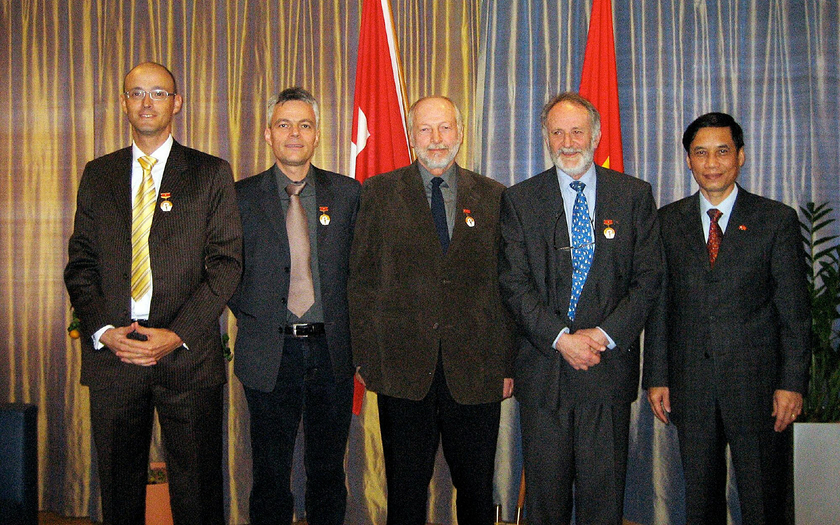
Civil courage, important appearances and work as an editor
"Walti" actively supported many young researchers at Eawag and also advocated for them with great moral courage to the management. He, whose lectures at NATO, the American Chemical Society and Gordon conferences were highly regarded, felt it was important for Eawag researchers to receive international recognition. He therefore repeatedly and successfully nominated people from his circle for major scientific awards.

His more than 16 years of service as editor of the journal Environmental Science and Technology (ES&T) contributed greatly to Eawag's international reputation. In 2008, ES&T dedicated an entire issue to him. In her editorial, environmental chemist Jennifer Field honours him as a pioneer who advanced the field of organic trace analysis. According to Field, he not only analysed trace substances, but also investigated where these substances came from, how they are transformed (or not), how they remain in the environment and what effects they have on the aquatic environment. Above all, Walter Giger made the regulatory authorities and industry aware of his findings, thereby bringing about real change. Jennifer Field also confirms Walter Giger's role as an important promoter and mentor: "Perhaps his most lasting legacy will be the large number of well-trained environmental chemists working in leading laboratories and regulatory agencies around the world," she writes.
Networking with practitioners and authorities
In fact, Walter Giger collaborated with practitioners early on and without fear of accusations of compromising the independence of research, for example with engineers to record material flows in urban water management. As a technical expert, he worked for the Federal Office of Metrology on the accreditation of the Bachema Institute as a recognised analytical laboratory. The resulting collaboration between Bachema and Eawag, for example in the training of apprentices, continues to this day.
Walter also contacted the authorities and private individuals when a trichloroethylene accident occurred at a textile cleaning company, contaminating Eawag's drinking water. And in 1986, when he was at the forefront of the task force helping to deal with the consequences of the Sandoz fire and the poisoning of the Rhine. He always took the time necessary to validate and optimise sampling and analysis procedures.
Others about Walter Giger (testimonials)
Alexander Zehnder (Director of Eawag 1992-2004): For Walter Giger, quality and quantity were two sides of the same coin. This insight shaped Eawag's strategy and formed the basis for its international reputation. Discovering a pollutant was not enough for Walti; he insisted on a complete qualitative and quantitative understanding of its origin, fate and transformations. His research was focused on developing qualitative and quantitative solutions, devising preventive measures and remediation technologies, and pushing for corrective regulations. Beyond his professional contributions, Walti was a deeply cherished friend.
Lee Fergusson (Professor, Duke University, Durham, North Carolina): I will never forget giving Walter a tour of my field site in New York Harbor when he visited me for my PhD dissertation defence in 2002. I was so nervous to guide this giant in the field of environmental chemistry around the marshes of Jamaica Bay, NY. Nothing could have prepared me for how engaged he was and how fun it was to just talk about life and science with the background perfume of wastewater effluent in the bay. He and I have been good friends ever since.
Hans-Peter Kohler (colleague and mountain companion, head of the Microbiology Group at Eawag until 2020): Walter's enthusiastic commitment to research did not prevent him in the slightest from looking beyond the edge of his plate. Walter's professional achievements deserve the utmost respect, but our heartfelt appreciation today and forever is equally due to his extraordinary human qualities.
Jerald (Jerry) Schnoor (Professor Emeritus, University of Iowa, USA): Walter Giger was a precious friend and colleague to me from the 1980s onwards at Eawag. He and his wife Erika opened their house to me and my family for dinner and conversation, even though I was not in his department (and I was just a stupid foreigner who couldn't speak the language). In later years, Walter and I worked closely as editors of ES&T. His discovery of nonylphenol in sediments emanating from detergent surfactants was a monumental contribution to environmental analytical chemistry.
Martin Reinhard (1972-76 employee of the Giger Group, later professor at Stanford University): When Walter Giger hired me to set up his laboratory, environmental chemistry was still based mainly on aggregate parameters such as total organic carbon content and biological oxygen demand. Walter deliberately developed his research programme to address practical problems while introducing state-of-the-art analytical methods. Just as he planned his mountaineering expeditions – precisely and with attention to detail. I am very grateful to Walter for the wonderful memories of our scientific collaboration and our mountaineering adventures together.
Rolf Gloor and Sabine Ruckstuhl (Bachema AG): Walter was a dedicated scientist who had a great gift for bringing people together and encouraging them. His network extended beyond academia into the private sector, where he promoted his ideas for a more sustainable future. We will fondly remember Walter as a person, not least because of all the experiences we had with him during outdoor activities.
Cover picture: Walter Giger 1992 (Photo: Eawag)
The memorial service for Walter Giger will take place on 25 November 2025 at 2 p.m. in the Reformed Church in Zurich Höngg. It is open to everyone.

